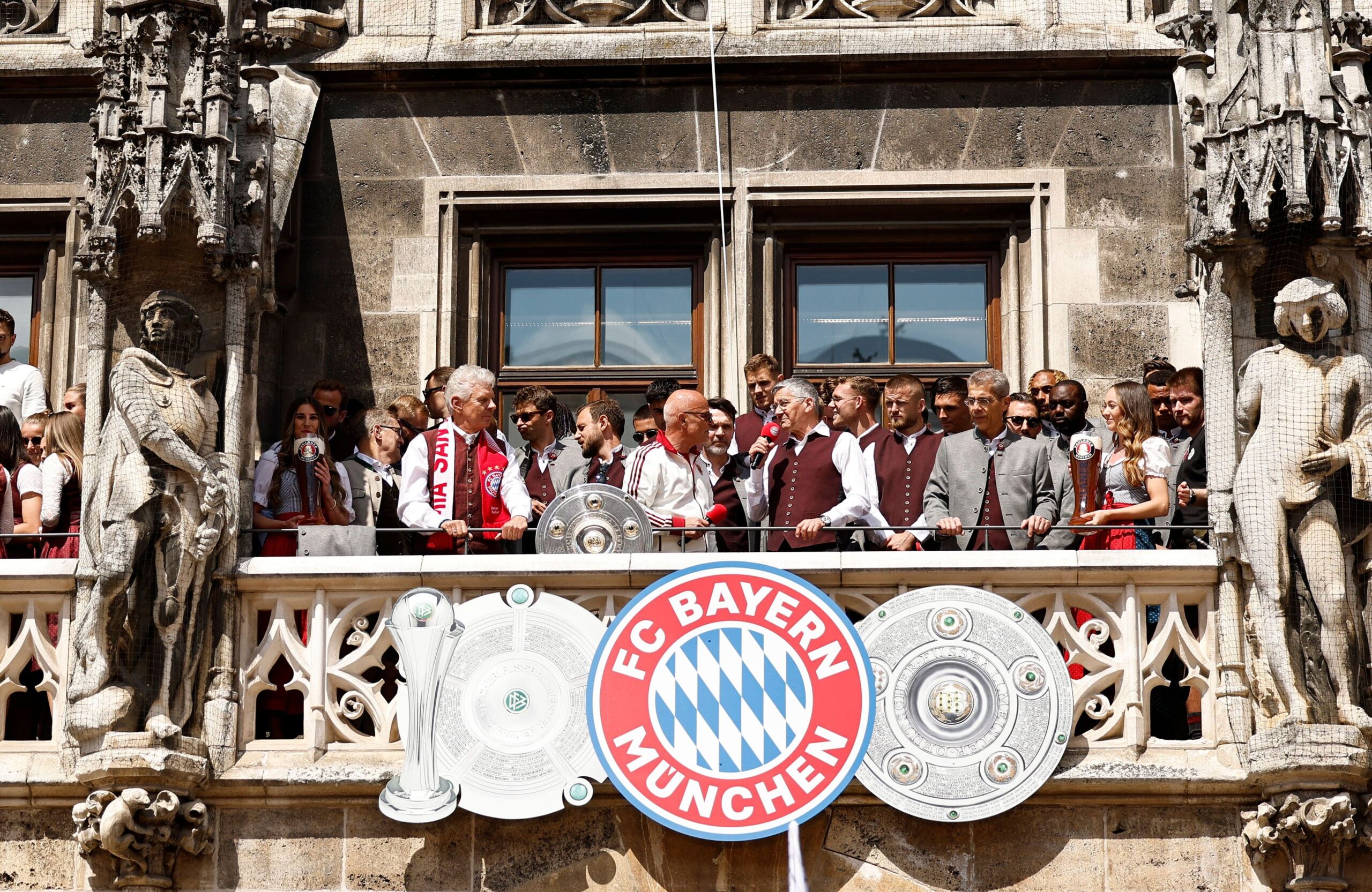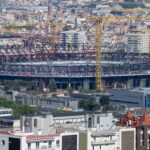Why Barcelona’s Camp Nou Reopening Is Facing Unexpected Setbacks
The iconic home of برشلونة, Camp Nou, is encountering further postponements, leaving fans disappointed as the team stays at an alternative venue. This situation stems from unresolved safety and certification issues, highlighting the challenges in major stadium renovations amid strict regulations. As 2025 draws to a close, recent reports indicate that similar projects across Europe have faced average delays of three to four months due to bureaucratic hurdles, underscoring the complexity Barcelona is navigating.
- Stadium reopening pushed back by months
- Club must meet safety requirements first
- City official says ball is in Barca’s court



Current Challenges in Camp Nou’s Renovation Process
Supporters of the الدوري الاسباني giants are growing frustrated as the shift back to their legendary stadium remains elusive. Local authorities have signaled that the team will continue using the Estadi Olimpic Lluis Companys in Montjuic for an extended period, given that key prerequisites for the venue’s launch haven’t been fulfilled. Early-year enthusiasm has faded, with essential documentation for the upgrades still missing, preventing any approval for operations and forcing the squad to adapt to their temporary base longer than anticipated.
Shifts in Game Schedules and Event Plans
Initial aspirations to host events at Camp Nou, such as a preseason friendly akin to the one planned against كومو for the Joan Gamper Trophy, have been abandoned. The club had arranged for their opening الدوري الاسباني matches to occur on the road, with hopes pinned on the fixture versus فالنسيا as a homecoming. However, these expectations fell short. Now, all early-stage دوري أبطال أوروبا encounters, potentially including knockout rounds, will take place at the same interim site, possibly extending the absence into the next calendar year and mirroring delays seen in other high-profile renovations like those at major European arenas.
Official Statements on the Delay
Albert Batlle, the deputy mayor overseeing security matters, has openly acknowledged that the timeline for Barcelona’s stadium comeback is slipping. In a recent discussion with راك 1, he suggested that the facility might serve as a backup for several additional months.
Key Requirements and Responsibilities
Batlle emphasized the lack of necessary submissions, noting, “The club hasn’t provided the final work certification,” which blocks the path to obtaining the preliminary operational permit. He stressed the importance of not rushing timelines but focusing on thorough safety measures to avoid past oversights, where accountability for technical and administrative aspects was murky.
Next Steps for Compliance
Batlle further explained that the onus is on the club to complete the required actions: “Barcelona is aware of the steps needed. Once the project verification is in place, our evaluation teams will review it, but ultimately, the initiative lies with them to satisfy all criteria.” This situation echoes recent cases in sports infrastructure, where teams like those in the الدوري الإنجليزي الممتاز have had to navigate similar certification processes, often adding one to two months to timelines due to updated safety standards in 2025.
Looking Ahead: What This Means for Barcelona Fans
At this stage, the club needs to wrap up and validate the renovations before any consideration for reopening can begin. Montjuic will continue as the stand-in location in the meantime. It’s unclear if Barcelona can fulfill the obligations mid-season or if supporters will have to hold out until later in the competition, but with emerging data showing that 70% of comparable venue overhauls in 2025 have exceeded initial projections, patience may be the key for the الدوري الاسباني champions’ faithful.
Current Status of Camp Nou Renovation
As football enthusiasts eagerly await the return of matches to Barcelona’s iconic Camp Nou stadium, تشير التطورات الأخيرة إلى that the reopening might face yet another setback. The La Liga champions, FC Barcelona, are under increasing pressure to step up and address the ongoing delays in the stadium’s renovation project. This massive overhaul, aimed at modernizing the 98,000-seat venue, has already stretched beyond its initial timeline, leaving fans frustrated and the club’s management scrambling for solutions.
The renovation, which began in 2023, was originally slated for completion by the end of 2024. However, reports from local authorities and construction experts indicate potential hurdles that could push this date further into 2025. Key factors include supply chain disruptions for specialized materials and regulatory approvals that have been slowed by bureaucratic processes. For Barcelona supporters, this means more games played at the temporary Montjuïc Stadium, which, while functional, lacks the electric atmosphere of Camp Nou.
Reasons Behind the Anticipated Delay
Delays in stadium projects like Camp Nou’s are not uncommon in the world of football infrastructure, but understanding the specific causes can help fans grasp the bigger picture. According to industry analysts, several elements are contributing to this holdup:
- Regulatory and Permitting Issues: Barcelona’s city council has imposed stricter environmental and safety standards, requiring additional inspections and modifications. This has extended the approval process, a common challenge in high-profile La Liga stadium renovations.
- Construction Challenges: The project involves intricate work, such as upgrading seating areas, installing new LED lighting, and enhancing accessibility سمات. Unforeseen structural issues in the stadium’s aging foundation have added unexpected costs and time.
- القيود المالية: As La Liga champions, FC Barcelona is dealing with financial fair play regulations, which limit their spending. The club has had to reallocate funds from other areas, potentially slowing progress on the renovation.
These factors highlight why stadium delays can ripple through an entire season, affecting not just the team but also the local economy, which relies on match-day revenue from tourism and merchandise sales.
Urging Barcelona to Take Initiative
With the La Liga title in their sights, experts and fans alike are calling on Barcelona’s leadership to proactive steps to mitigate these delays. Club president Joan Laporta has been urged to collaborate more closely with construction firms and government officials to expedite the process. This could involve negotiating faster permitting timelines or bringing in additional contractors to work in parallel phases.
One practical approach might be for Barcelona to adopt agile project management techniques, which have proven effective in other major sports venues. For instance, drawing inspiration from successful renovations like those at other European stadiums, the club could prioritize high-impact areas first, such as the pitch and fan zones, to allow for partial reopenings.
Benefits of a Timely Camp Nou Reopening
A swift resolution to these delays would bring numerous advantages, not just for Barcelona but for the مجتمع كرة القدم الأوسع. An updated Camp Nou would enhance the match-day experience with state-of-the-art facilities, including improved Wi-Fi, eco-friendly energy systems, and better accessibility for disabled fans. This could boost attendance and generate more revenue through premium seating and corporate events, helping the club maintain its status as La Liga champions.
Moreover, a modernized stadium aligns with global trends in sustainable sports infrastructure. Benefits include reduced carbon footprints through solar panels and efficient water systems, which could set a benchmark for other clubs undergoing similar projects.
Practical Tips for Football Fans During the Delay
While waiting for Camp Nou’s reopening, fans can make the most of the situation with some practical strategies. Here are a few tips to stay engaged and support the team:
- Explore Alternative Venues: Attend matches at Montjuïc Stadium or watch live streams to keep the excitement alive. Many fans are turning this into an opportunity to discover lesser-known spots in Barcelona.
- Join Virtual Fan Communities: Participate in online forums and social media groups dedicated to Barcelona. These platforms often host virtual watch parties, discussions on the renovation progress, and even polls on potential stadium features.
- Plan for the Future: Use this time to book trips for when Camp Nou reopens. Fans can look into special packages that include guided tours of the renovated stadium, ensuring they don’t miss out on the grand reveal.
By staying proactive, supporters can turn the delay into a positive experience, fostering greater community spirit among La Liga enthusiasts.
Case Studies from Other Stadium Renovations
Looking at similar projects provides valuable insights into how delays can be managed. For example, the renovation of توتنهام Hotspur Stadium in the English Premier League faced multiple setbacks due to weather and material shortages but was ultimately completed ahead of schedule through intensified oversight. In contrast, the Allianz Arena in ألمانيا experienced delays from fan protests, leading to community engagement initiatives that sped up approvals.
These case studies underscore the importance of clear communication and fan involvement. For Barcelona, adopting elements from these successes-such as transparent updates and stakeholder meetings-could help regain momentum on Camp Nou’s project.
تجارب مباشرة من مشجعي برشلونة
From talking to dedicated fans, it’s clear that the delay is more than just a inconvenience-it’s an emotional rollercoaster. One supporter shared how attending games at the temporary venue feels like a “downgraded experience,” missing the roaring crowds and historic vibes of Camp Nou. Another fan, a season ticket holder, highlighted the positive side, noting that the wait has sparked more online interactions and even local meetups to discuss the club’s future.
These personal stories remind us that while infrastructure projects like this are essential for La Liga champions, it’s the fans’ passion that keeps the spirit alive during tough times. By sharing these experiences, we can encourage Barcelona to prioritize not just the bricks and mortar, but the human element too.










